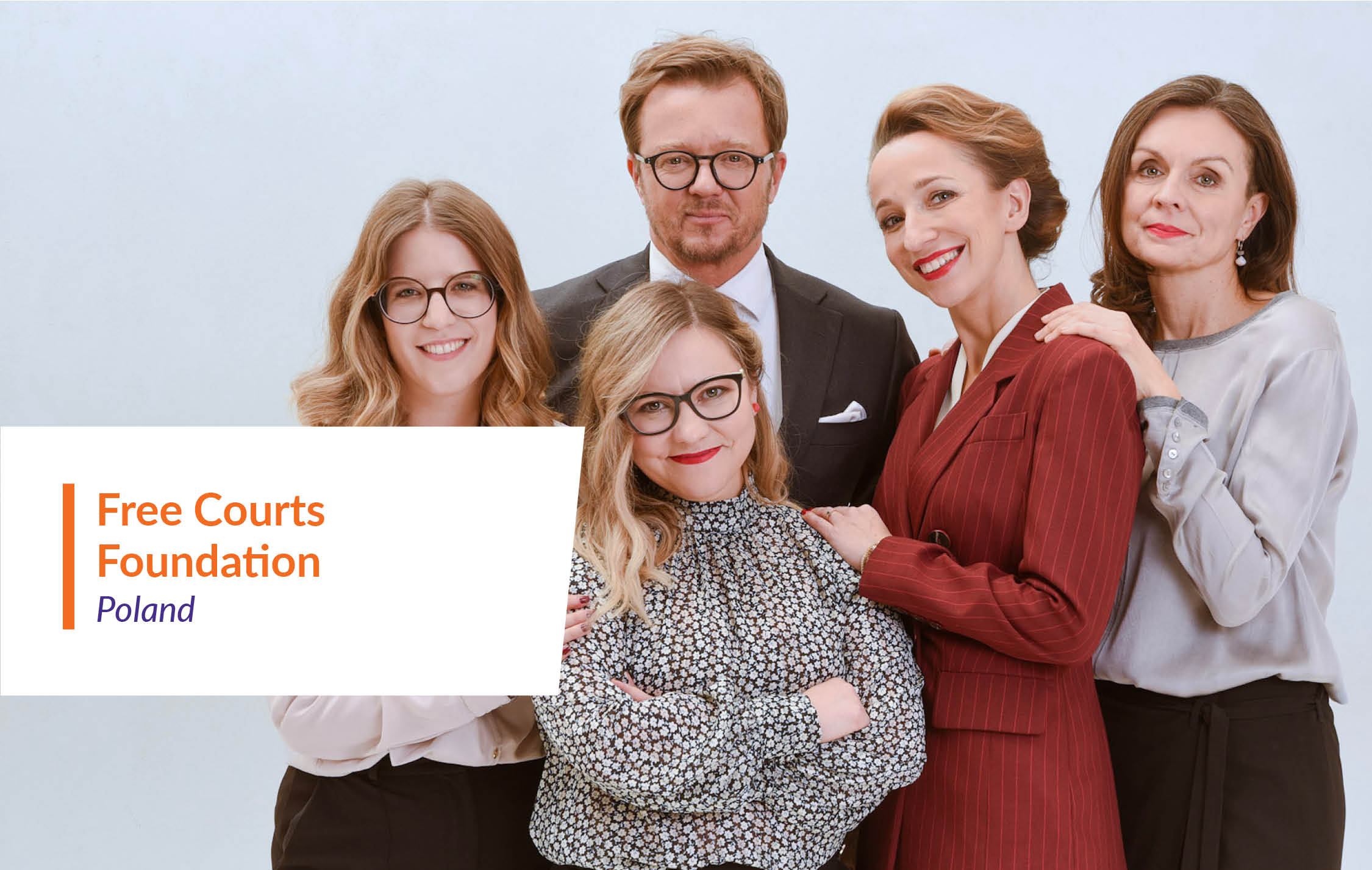Finalist
Justice Institutions
Civic Participation
Education
Judicial Reform
Political Process Monitoring
Voting Rights and Access
Share this
Contact information
www.wolnesady.org/en
Facebook
Instagram
X
YouTube
LinkedIn
Linktree

Free Courts Foundation: Defending the rule of law in Poland
The Problem
After Poland’s 2015 parliamentary elections, the winning party began dismantling the justice system under the pretext of "reparation of the judiciary," resulting in the paralysis of crucial institutions meant to safeguard citizens' rights. This included the Constitutional Court, Supreme Court, Common Courts and Public Prosecutor’s Office. The ruling party implemented unconstitutional regulations for appointing judges, violating the separation of powers principle. Moreover, changes in disciplinary regulations targeted judges applying European Union (EU) law, leading to harassment and disciplinary actions against them. Despite widespread protests, the government proceeded with its unconstitutional reforms. Subsequently, judges faced repression and political disciplinary proceedings, prompting them to seek representation and legal protection from European Courts like the European Court of Human Rights (ECHR) and the Court of Justice of the European Union (CJEU). These cases yielded precedent-setting rulings, offering avenues for redress not only in Poland but also for other EU and Council of Europe Member States.
The Approach
The Free Courts Foundation emerged in Poland in 2017 to address concerns over breaches of the constitution by the ruling party. The foundation focuses on defending the rule of law through educational initiatives and legal representation. Their first activities were to produce civic education videos for the general public about democracy, the rule of law and bodies established by the Polish Constitution. They also provide pro bono legal representation, particularly for judges facing disciplinary actions. They have handled over 100 cases concerning judicial independence and the rule of law, including representation before the ECHR and CJEU. Key judgments, such as Dolińska-Ficek and Ozimek v. Poland and Tuleya v. Poland, highlight breaches of domestic law and the erosion of judicial independence. The foundation also co-initiated the Justice Defense Committee (KOS) in 2018, aiming to support repressed judges and prosecutors. Through various media and advocacy efforts, they reach out to citizens, organizing events and disseminating information to uphold judicial independence and the rule of law in Poland.
The Impact
-
Appeared in proceedings before the CJEU addressing the independence of the judiciary, particularly the unconstitutional organization of the National Council of the Judiciary.
-
Represented Polish judges in over 100 cases, obtaining several landmark judgments that influence the legal system. Notable cases include Broda and Bojara v. Poland, Dolinska-Ficek v. Poland, Wróbel v. Poland, Tuleya v. Poland, and Żurek v. Poland, which have challenged various aspects of Poland's legal and constitutional framework.
-
Interventions have resulted in injunctions and suspensions against actions of disciplinary chambers, slowing down further suspensions and lifting of judges' immunity.
-
Represented prominent figures like Professor Małgorzata Gersdorf and Professor Wojciech Sadurski in cases defending civil rights and freedoms, including freedom of speech.
-
Organizing educational activities for students on, inter alia, the values of the European Convention on Human Rights and the European Union.
-
Pro-frequency campaigns for parliamentary and local elections.
The Future
After the 2023 parliamentary elections, there's optimism for improving the rule of law in Poland. The new government pledges efforts towards this, adding responsibilities for the Foundation. Experts anticipate challenges in the process but view it as a model for other nations. Meanwhile ECHR cases persist, focusing on court bias and disciplinary actions against judges. The Foundation will also continue to focus on social, educational, and pro-frequency activities.